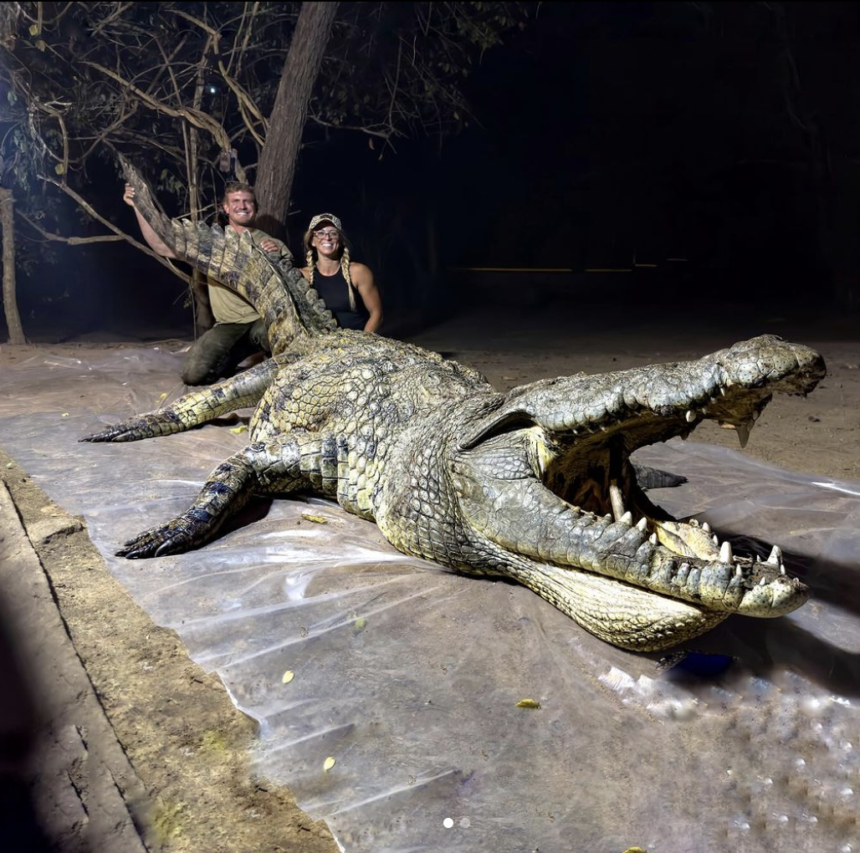Recently, social media has been ablaze with controversy sparked by a renowned American hunter named Josh, who shared a video showcasing his capture of a giant crocodile in Tanzania. The video, featuring the crocodile suspended from a tree, stirred public outrage, prompting politicians and activists to seek clarification from relevant authorities.
This incident highlights many Tanzanians’ apparent lack of awareness regarding wildlife hunting laws. Understanding which animals are legally permitted for hunting and which are protected by law is crucial. Tanzania, boasting an abundance of wildlife, relies significantly on trophy hunting for revenue generation. The country leads globally in lion population and ranks third in elephant numbers, with over 1,000 bird species.
Tanzania’s approach to conservation involves allocating special hunting blocks, governed by national and international regulations. The Tanzania Wildlife Authority (TAWA) oversees wildlife management and issues hunting licenses. Various species are legally designated for hunting, including buffalo, bushpig, elephant, lion, and more. Hunting seasons run from July 1st to December 31st, aligning with the dry months.
Regulations are in place to ensure sustainable hunting practices, with quotas determined by factors such as animal populations and search efforts. Hunting companies, allocated blocks through transparent processes, apply for permits on behalf of clients. Three safari packages cater to different preferences, ranging from regular (10 days) to premium (21 days).
For those interested in bird shooting, Tanzania offers packages featuring species like sand grouse, quail, and various doves. Fee structures have been reviewed to enhance affordability and competitiveness within the region, covering block, permit, conservation, observer, and professional hunter license fees.
While trophy hunting plays a crucial role in wildlife conservation in Tanzania, it is essential for hunters and the public alike to be well-informed about legal and ethical boundaries. For a comprehensive understanding of regulations, fees, and other pertinent information, the Wildlife Conservation (Tourist hunting) Regulations 2015, along with its amendments of 2017 and 2019, provide valuable insights.


